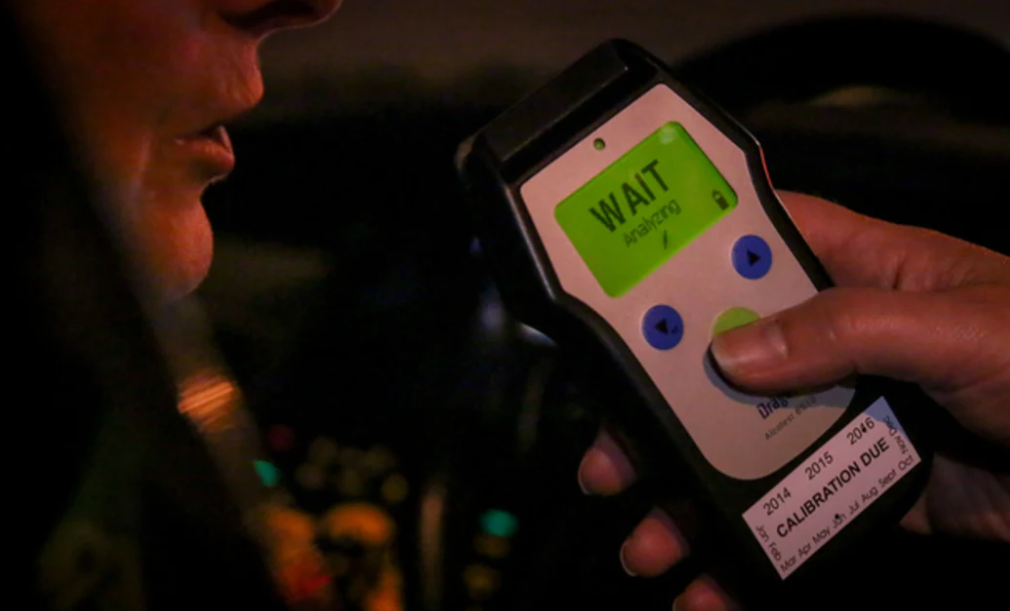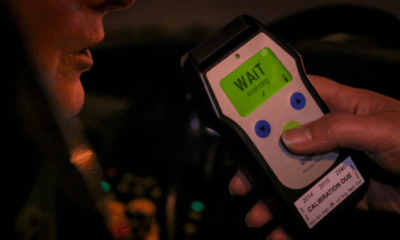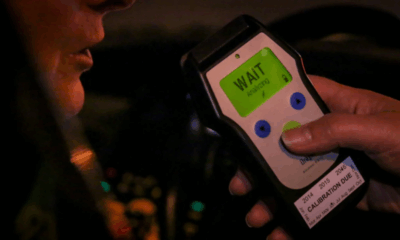Science
New Zealand Police Mandate Breath Test Training After Falsified Results

Every police officer in New Zealand is now required to complete an online training module focused on alcohol breath testing. This directive follows the alarming revelation that over 120 staff members are under investigation for allegedly falsifying results from approximately 30,000 alcohol breath tests. The discrepancies came to light after police developed a new algorithm to analyze testing data, as the breath testing devices themselves were unable to differentiate between legitimate and erroneous results.
A memo disseminated to police personnel highlighted the significant impact these falsified tests have had on public trust. “The recent discovery of breath tests being falsely recorded has led to trust and confidence impacts for police, including with our partner agencies,” the memo stated. As part of their commitment to restore this trust, the New Zealand Police Executive has mandated that all constabulary staff complete the training by December 4, 2023.
Details of the Training Module
The online module, which became available immediately, is designed to take approximately 15 minutes to complete. It covers essential topics such as the proper operation of breath testing devices, data docking procedures, and the critical importance of breath screening for road safety. The memo emphasized, “Your professional approach to breath screening saves lives and maintains public confidence in our road safety efforts.”
Acting Deputy Commissioner Jill Rogers acknowledged the negative impact of the situation on public trust during an interview with RNZ’s Checkpoint programme. She affirmed the police’s commitment to rectifying the situation, stating, “This training will reinforce correct practices and expectations, and ensure every staff member understands their responsibilities as we head into the busy summer period.”
Rogers elaborated on the nature of the misconduct, explaining that some officers had manipulated their breath testing devices. “What these staff have done is, either at the start of the shift or during the shift, at the end of the shift, they’ve clicked the device more times than they have actually seen them interacting with a motorist.” This manipulation resulted in an unusually high number of tests recorded, which the algorithm flagged as outside normal parameters.
Investigations and Future Implications
The police are now exploring the rationale behind these false records. Rogers suggested that meeting performance targets may have influenced the actions of some officers, who exceeded legitimate testing numbers to project an image of productivity. “I can’t predict what’s going to come from those employment investigations,” she noted, adding that if criminal wrongdoing is identified, appropriate actions will be taken.
As the investigations unfold, none of the implicated officers have been suspended. “That’s a question we have,” Rogers remarked when asked about the trustworthiness of the involved staff. She emphasized a focus on those diligently working to ensure road safety while allowing investigative processes to take their course.
The New Zealand Transport Agency (NZTA) was informed of the issue in September 2023 and expressed concern over the integrity of drink-driving enforcement, which is vital for ensuring road safety. A spokesperson stated that they are closely monitoring the situation and have requested further information from the police.
Despite the troubling revelations, NZTA noted that enforcement efforts have generally led to improved road safety outcomes. An independent evaluation of the Road Policing Investment Programme is currently underway, which will inform future activities and targets.
As this situation develops, the New Zealand Police are working diligently to restore public confidence in their breath testing regime and ensure that road safety remains a top priority.
-

 Sports2 months ago
Sports2 months agoNetball New Zealand Stands Down Dame Noeline Taurua for Series
-

 Entertainment2 months ago
Entertainment2 months agoTributes Pour In for Lachlan Rofe, Reality Star, Dead at 47
-

 Entertainment4 weeks ago
Entertainment4 weeks agoNew ‘Maverick’ Chaser Joins Beat the Chasers Season Finale
-

 Sports5 days ago
Sports5 days agoEli Katoa Rushed to Hospital After Sideline Incident During Match
-

 Sports2 months ago
Sports2 months agoSilver Ferns Legend Laura Langman Criticizes Team’s Attitude
-

 Politics1 month ago
Politics1 month agoNetball NZ Calls for Respect Amid Dame Taurua’s Standoff
-

 Entertainment2 months ago
Entertainment2 months agoKhloe Kardashian Embraces Innovative Stem Cell Therapy in Mexico
-

 World3 months ago
World3 months agoPolice Arrest Multiple Individuals During Funeral for Zain Taikato-Fox
-

 Sports3 months ago
Sports3 months agoGaël Monfils Set to Defend ASB Classic Title in January 2026
-

 Sports3 days ago
Sports3 days agoJamie Melham Triumphs Over Husband Ben in Melbourne Cup Victory
-

 Entertainment1 month ago
Entertainment1 month agoTyson Fury’s Daughter Venezuela Gets Engaged at Birthday Bash
-

 Sports1 month ago
Sports1 month agoHeather McMahan Steps Down as Ryder Cup Host After Controversy



















